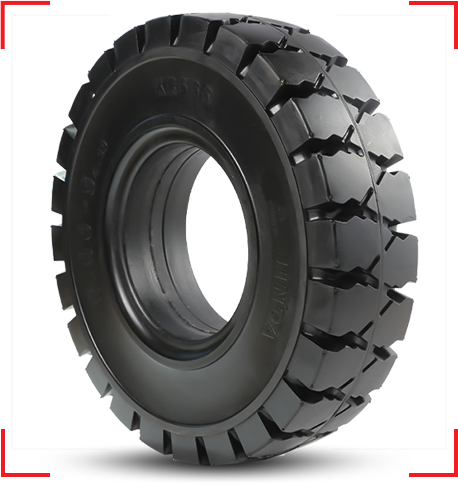Energy-saving solid tires for forklifts represent an innovative approach to tire technology. These tires are specifically engineered to reduce rolling resistance and subsequently decrease energy consumption compared to traditional solid tires. The design and composition of these tires aim to improve efficiency without compromising on durability or performance.
Advantages of Energy-Saving Solid Tires
Reduced Rolling Resistance: The primary benefit of energy-saving solid tires is their ability to minimize rolling resistance. This translates to easier movement, requiring less effort and power from the forklift to operate, resulting in reduced energy consumption.
Enhanced Energy Efficiency: By lowering the amount of energy needed for propulsion, these tires contribute to increased energy efficiency in forklifts. This efficiency improvement can lead to substantial savings on operational costs and contribute to a more sustainable and environmentally conscious operation.
Extended Battery Life: Forklifts powered by electric batteries can benefit significantly from energy-saving solid tires. Reduced rolling resistance places less strain on the battery, extending its lifespan and reducing the frequency of recharges required during a shift.
Improved Productivity: Forklifts equipped with energy-saving solid tires experience smoother and more effortless movements. This results in improved handling, quicker response times, and enhanced maneuverability, ultimately boosting overall productivity in material handling tasks.
Durable and Low Maintenance: Energy-saving solid tires maintain the durability and reliability associated with traditional solid tires. They are resistant to punctures, cuts, and wear, minimizing downtime and maintenance costs often associated with pneumatic tires.
Applications and Industries
Energy-saving solid tires find applications in a wide array of industries, particularly those with high-intensity material handling operations. Warehouses, distribution centers, manufacturing plants, and logistics facilities benefit from the efficiency and durability of these tires. The reduction in energy consumption aligns well with industries striving for sustainability and cost-effectiveness.
Considerations and Implementation
When considering the adoption of energy-saving solid tires for forklifts, various factors need consideration. Proper tire selection should match the specific forklift model and the nature of the operational environment. Additionally, routine maintenance and checks to monitor tire wear and pressure are essential for optimal performance and longevity.




 Français
Français
 عربى
عربى
 Español
Español















